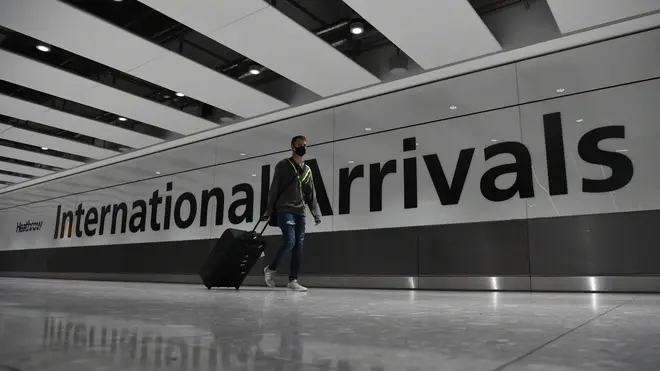
Richard Spurr 1am - 4am
11 September 2020, 10:54

Just 1.4 million people travelled through the airport in August, compared with 7.7 million during the same month in 2019.
Heathrow has warned that the Government’s quarantine policy is costing jobs “every day” after recording an 82% decline in passenger numbers last month.
The west London airport wants testing to be permitted as a way of reducing the 14-day coronavirus quarantine requirement for arriving travellers.
Just 1.4 million people travelled through the airport in August, compared with 7.7 million during the same month in 2019.
Data shows we need to remove PORTUGAL (minus the AZORES and MADEIRA), HUNGARY, FRENCH POLYNESIA and REUNION from the Travel Corridor list to keep everyone safe. If you arrive in England from these destinations after 4am Saturday, you will need to self-isolate for 14 days.
— Rt Hon Grant Shapps MP (@grantshapps) September 10, 2020
Mainland Portugal, Hungary, French Polynesia and Reunion were removed from the Government’s quarantine exemption list for England on Thursday.
Travellers have until 4am on Saturday to return before the new rules are implemented.
For holidaymakers scrambling to return from Portugal’s Algarve to London on Friday, British Airways had flights to Heathrow costing £494, while easyJet had a flight to Gatwick for £286.
More than half of the passengers who used Heathrow in August were travelling to or from the European Union.
Demand for North American routes was down 95% year on year.
1.4m people travelled via Heathrow last month – August passenger demand was down 81.5% compared to last year, which is less than a fifth of what is usually seen in the summer getaway.
Find out more: https://t.co/evnM9t1MGk pic.twitter.com/TPDreVQo3c
— Heathrow Airport (@HeathrowAirport) September 11, 2020
Heathrow said more than 30 airports around the world are already using coronavirus testing of travellers as a way of reducing quarantine requirements.
One of those airports, Germany’s Frankfurt, has overtaken Heathrow in terms of passenger numbers.
Heathrow chief executive John Holland-Kaye said: “Britain’s economic recovery is falling behind.
“Heathrow’s traffic figures for August demonstrate the extent to which quarantine is strangling the economy, cutting British businesses off from their international markets and blocking international students, tourists and investors from coming here to spend money.
“The Government has announced it is looking at the options for reducing quarantine for passengers who test negative for Covid-19 but ministers urgently need to turn words into action. Every day of further Government delay costs British jobs and livelihoods.”